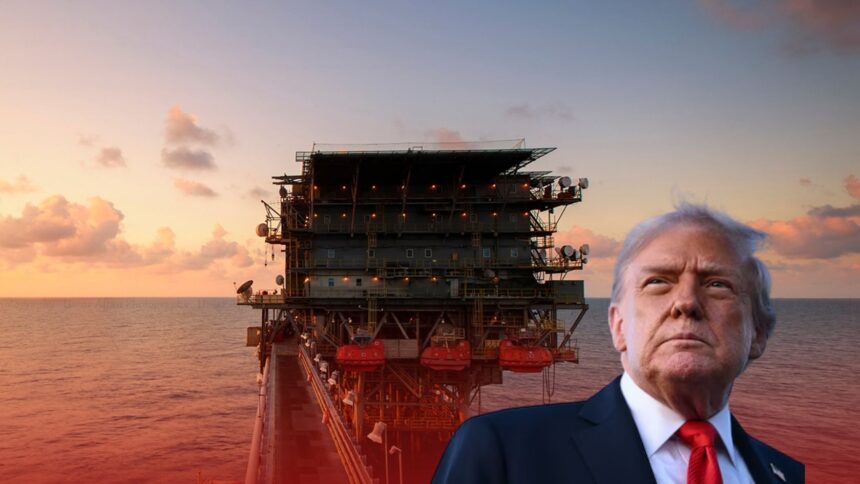President Donald Trump is urging every NATO member to stop buying Russian oil and is linking any new U.S. sanctions to allied compliance. His push, delivered Saturday, comes as Europe’s intake of Russian barrels has fallen to historic lows but not to zero, and a handful of exemptions and non-EU purchases keep cash flowing to Moscow.
The White House calculation is that a full alliance halt would tighten the sanctions net without risking the energy shock that roiled markets in 2022.
Europe has already shrunk the trade dramatically, Eurostat data show the bloc’s dependence on Russian petroleum has plunged since early 2021, with remaining flows concentrated in a few places.
Hungary and Slovakia still receive crude via the southern branch of the Druzhba pipeline under an EU exemption for landlocked states. Turkey, a NATO member outside the EU regime, continues to import Russian oil by sea.
These are the practical targets of the administration’s demand because they preserve a narrow but meaningful outlet for Russian crude.
Officials argue the strategy is about leverage as much as volume. If NATO closes the last purchasing routes, Washington can layer on additional sanctions knowing they will bite rather than simply reroute trade.
The administration is also signaling a broader squeeze on buyers outside the alliance, sharpening the focus on price discounts for Russia’s Urals grade and the logistics that carry it to Asia.
European policymakers have already approved new limits on oil products refined from Russian crude that take effect in 2026, a step that could reshape diesel and other fuel flows. By calling for an allied halt now, the White House aims to front-load pressure while the market is relatively balanced and inventories are not under acute stress.
Recent market snapshots from the International Energy Agency’s September Oil Market Report point to softer Russian export revenues than a year ago but continued resilience in shipped volumes, which is why enforcement and coordination remain the critical variables.
What changes if NATO actually stops buying
A full NATO cutoff would be modest in global volume terms but significant for Russia’s netbacks and for a few Central European refineries.
Plants that still run Russian grades would need to accelerate switches to seaborne alternatives through Croatia and other routes, a shift that is technically feasible but politically sensitive because it raises costs. For Russia, losing the last pipeline outlet into the EU would force even more barrels onto longer voyages operated by a shadow fleet, increase transport costs, and widen quality-related discounts.
Analysts tracking vessel movements and revenues at the Centre for Research on Energy and Clean Air note that deeper enforcement typically expands the gap between Russian export prices and global benchmarks.
Stronger curbs tend to widen the discount on Russian grades relative to Brent, which pressures Moscow without necessarily lifting the global benchmark point for point.
Some EU leaders want a rapid energy divorce from Moscow, while others worry that sudden changes could ripple through consumer prices and heavy industry. The numbers and the geography explain why the debate has narrowed.
Europe’s purchases are far below pre-war levels, and the remaining flows are focused enough that decisions in a few capitals will determine whether the tap finally shuts. By tying new U.S. sanctions to an all-ally halt, the administration is betting that a last-mile push can deliver more impact than another round of piecemeal measures.




















